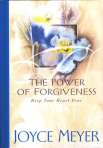My pastor’s message this weekend was based on Jesus’ parable of The Unforgiving Servant. Don’t you just love Jesus’ parables? This one was taken from Matthew 18: 23-35, (just in case you would like to read up on it yourself). I’ve included the passage at the end of this post.
Anyhow, to refresh your memory, this parable was about the servant who owed his king what would be the equivalent today to many, many millions of dollars. The servant could not repay the debt and begged his king for mercy. With profound compassion the king forgave him the entirety of the debt owed and sent him on his way. This very same servant who had just been forgiven such a huge debt was owed just a little money by a fellow servant. The amount this fellow owed was about a day’s wage, or maybe $100 to $200 in today’s money. The fellow servant could not repay the debt and got down on his knees and begged for mercy of his own. Unwilling to show any compassion or forgiveness whatsoever, the servant had his fellow servant thrown into prison until such a time he could repay the debt! Obviously, Jesus was pointing out, that when compared to what the first servant had been forgiven, this debt was very, very, tiny indeed.
The quintessential principle here is, the one who is forgiven much not only should forgive much, but must forgive much. The role of forgiveness in marriage is that grace and mercy shown to our spouse goes way beyond a mere system of quid pro quo, but must be absolutely without limit. Marriage is not a place for counting offenses and the number of times we forgive in some sort of game of tit for tat. Rather, as the parable teaches, we are to forgive much because God has already forgiven us of so much.
God expects us to extend mercy and forgiveness to one another, end of discussion. If we don’t, we as the one who refuses to forgive, ends up in an emotional prison of our own making. If you read the end of Jesus’ parable of the Unforgiving Servant, you will see that the king finds out about the servants lack of mercy for his fellow servant and “turned him over to the jailers to be tortured”.
In marriage as well as any relationship, our unwillingness to forgive keeps us in our own prison of hurt, anger, resentment, and even revenge. Being unforgiving is like drinking poison and expecting the other person to die. In the Parable of the Unforgiving Servant, Jesus is presenting a principle similar to the forgiveness command for believers found in Ephesians 4:32, “And be ye kind to one to another, tenderhearted, forgiving one another, even as God for Christ’s sake hath forgiven you.” If we refuse to forgive, we miss out on so much joy, happiness and love that exists in the fresh air just outside the walls of our self-made torturing, unforgiving prison.
Robert Quillen, the famed journalist of the 1930’s Saturday Evening Post wrote, “A happy marriage is the union of two good forgivers.” No matter how much a couple has in common, or how polished their communication skills, or how loving, caring and thoughtful they may be to one another, offenses still happen. It’s part of the human condition. If spouses can assume positive intent on the part of the other, seek understanding, be quick to apologize and quick to forgive, they add vital ingredients to the recipe of a great marriage. Therefore, because we have received much grace, “while we were yet sinners Christ died for us” (Romans 5:8), we are commanded to give that same grace to others. Why not try that on your spouse today.
When a couple’s life is changed by God’s love, they are able, out of the overflow of His love, to attach high value to one another and love each other. Instead of riding each other about various problems, they will find ways to build up and encourage each other. When thoughts and feelings can be expressed without anger and hate, but rather with understanding and validation, miraculous changes can take place in the couple and their marriage.
No two marriages are exactly alike, but know that God’s call to forgiveness can free you and your spouse to take the next step towards a fulfilling and God-honoring marriage.
The Parable Of The Unforgiving Servant
Matthew 18:23-35 (New International Version)
23”Therefore, the kingdom of heaven is like a king who wanted to settle accounts with his servants. 24As he began the settlement, a man who owed him ten thousand talents was brought to him. 25Since he was not able to pay, the master ordered that he and his wife and his children and all that he had be sold to repay the debt. 26The servant fell on his knees before him. ‘Be patient with me,’ he begged, ‘and I will pay back everything.’ 27The servant’s master took pity on him, canceled the debt and let him go. 28But when that servant went out, he found one of his fellow servants who owed him a hundred denarii. He grabbed him and began to choke him. ‘Pay back what you owe me!’ he demanded. 29His fellow servant fell to his knees and begged him, ‘Be patient with me, and I will pay you back.’ 30But he refused. Instead, he went off and had the man thrown into prison until he could pay the debt. 31When the other servants saw what had happened, they were greatly distressed and went and told their master everything that had happened. 32Then the master called the servant in. ‘You wicked servant,’ he said, ‘I canceled all that debt of yours because you begged me to. 33Shouldn’t you have had mercy on your fellow servant just as I had on you?’ 34In anger his master turned him over to the jailers to be tortured, until he should pay back all he owed. 35This is how my heavenly Father will treat each of you unless you forgive your brother from your heart.”
Janet’s Recommended Reading For This Post:





 Posted by Janet Kester
Posted by Janet Kester 



